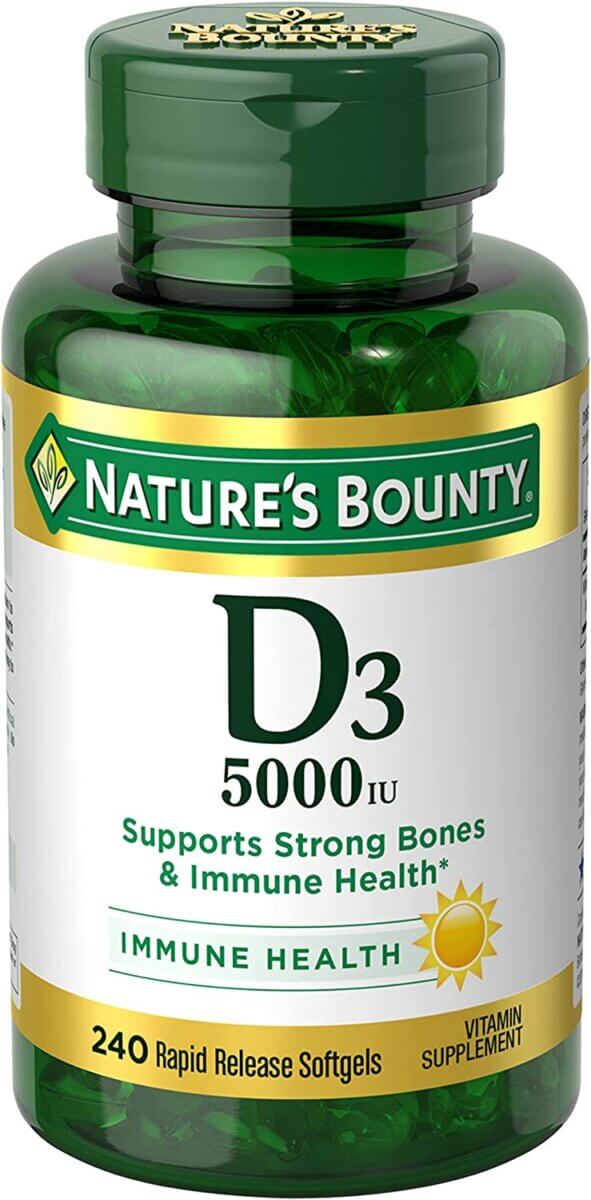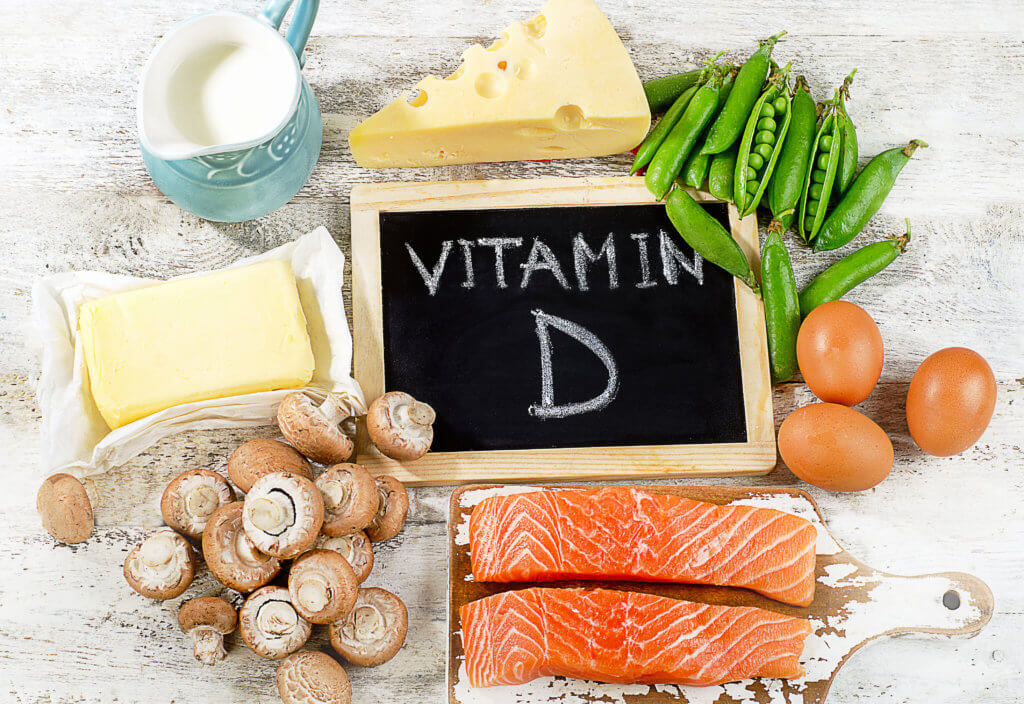A deficiency in vitamin D could lead to several different health problems. Vitamin D is essential for proper bone development and maintenance, but it also is crucial for nervous, musculoskeletal, and immune function. As such, having low amounts in your system puts your body at risk in several ways. If you find out that you’re deficient, it might seem easy to just grab the nearest vitamin D supplement and keep it moving. However, things aren’t that simple in reality.
Vitamin D is a fat-soluble vitamin, meaning that its absorption depends on the gut being able to absorb fat from the diet. Most people know that sun exposure helps our skin to make vitamin D on its own. It’s relatively easy for the body to jumpstart this process, especially since it only takes short bursts of the Sun to do it. Vitamin D is also abundant in fatty fish and seafood — including cod liver, salmon, and sardines.
Despite the various sources available, over 41% of Americans are vitamin D deficient. Scientists are still working to understand vitamin D metabolism because all of the possible reasons for deficiency prevalence are still unclear. A diet low in vitamin-rich foods and lack of sunlight are two key explanations, but there is still a lack of understanding on a deeper level. For example, African Americans have deficiency rates that are nearly double that of the general population. At the same time, they tend to have higher bone density and a lower risk of osteoporosis compared to Caucasians.
Vitamin D supplements are typically the first line of defense against a deficiency, and for good reason. The supplements have shown promise in protecting against diseases like diabetes and dementia. However, it’s important to know the best ways to pick and take this type of supplement due to the different forms available, their fat-soluble nature, its relationship to calcium, and absorption tendencies.
Vitamin D2 vs. Vitamin D3
There are two forms of vitamin D that you’ll see on supplement labels: vitamin D2 and D3.
D2 is the form found in plant foods that isn’t as effective as D3, which is the more active form that’s produced by our bodies. In most cases, your doctor will probably tell you to find D3, but taking it a step further than that can be key to truly raising your levels.

How to maximize your supplementation
Taking it a step further than just making sure you have a D3 supplement can be key to ensuring your body is equipped with what it needs to process vitamin D effectively and truly raise your levels.
Maintain a healthy weight
- Since vitamin D is fat-soluble, the more overweight someone is, the more vitamin D will sit in fat cells rather than in blood circulation. For this reason, it’s common for overweight and obese people to be deficient and need higher vitamin doses for correcting that.
Eat boron-rich foods
- Boron is an element in food that you may not hear much about, but probably should. It helps your body metabolize key vitamins and minerals, with vitamin D being one of the top. Boron essentially supercharges vitamin D by extending the half-life. In other words, it makes it so that vitamin D takes longer to break down in the body, therefore leaving you with higher amounts for longer. It also helps regulate magnesium and phosphorus, which are also both key parts of vitamin D metabolism as well. Although there isn’t an established dietary recommendation for boron, it’s still important to ensure you’re getting some everyday. The most common food sources include: apples, coffee, dried beans, milk, and potatoes. Some people choose to supplement, but it’s easy to go overboard on that so it’s best to speak with your healthcare provider before considering it.
Make sure your supplement has vitamin K
- Unless you’re eating a lot of natto or goose liver pate, you’re probably not getting too much bioavailable vitamin K. If you are choosing to supplement vitamin D, try to find one that also has vitamin K2 in it. Both vitamins work synergistically to make sure that calcium stays in balance. Vitamin D3 helps your body absorb calcium easily, and K2 helps to make sure said calcium travels to your bones rather than your arteries, which could lead to plaque buildup. Including vitamin K is especially important for people with severe deficiencies that require high doses of D3. Studies have shown that taking high doses alone can lead to an excess of calcium, which has several health implications.
Take your supplement with food
- While you can take your supplement without food, it’s not the most optimal way to go. Since vitamin D and K are fat-soluble, ensuring you take it with a meal that has some fat included is best to help facilitate absorption by your bloodstream. This doesn’t have to be anything crazy, just a meal cooked in olive oil or some avocado toast will do.

Bottom Line
Vitamin D metabolism is a complex topic that scientists are only just scratching the surface on when it comes to understanding the ins and outs. So far, we know that vitamin D supplements can help correct a deficiency, but it may not if supplementation is done incorrectly. If you believe you’re deficient, talk with your doctor or dietitian about getting a blood test and doing any subsequent steps from there.
You might also be interested in:
- A Dietitian’s Take: If you only take one supplement, this is the one to pick
- Best Vitamin D Supplements: Top 5 Products Recommended By Expert Websites
- Best Women’s Multivitamins For 2023: Top 5 Brands Recommended By Expert Reviews
- Best Men’s Multivitamins In 2023: Top 4 Brands Most Recommended By Experts


Since 2007 I have studied about Vitamin D after discovering our 17 year old daughter had Multiple Sclerosis. Her Neurologist at the time indicated this was one of the factors likely in MS.
Your article is one of the first I have read in 16 years of research that adequately and accurately tells everyone HOW to take this critical supplement. I am often left disappointed by others who while advocating for Vitamin D, neglect to inform that there is a process for taking this supplement in order for it to actually do its job. Even peer reviewed studies that end up neglecting the vital information on how to take the vitamin, fail us as a society because they falsely claim D does not work, and likely their studies are correct because they skip the critical part of the process.
Thank you for sharing your knowledge and research so wonderfully. BTW, my daughter, while on a very high dose regiment of Vitamin D with her Neurologist and PCP monitoring, has been relapse free.